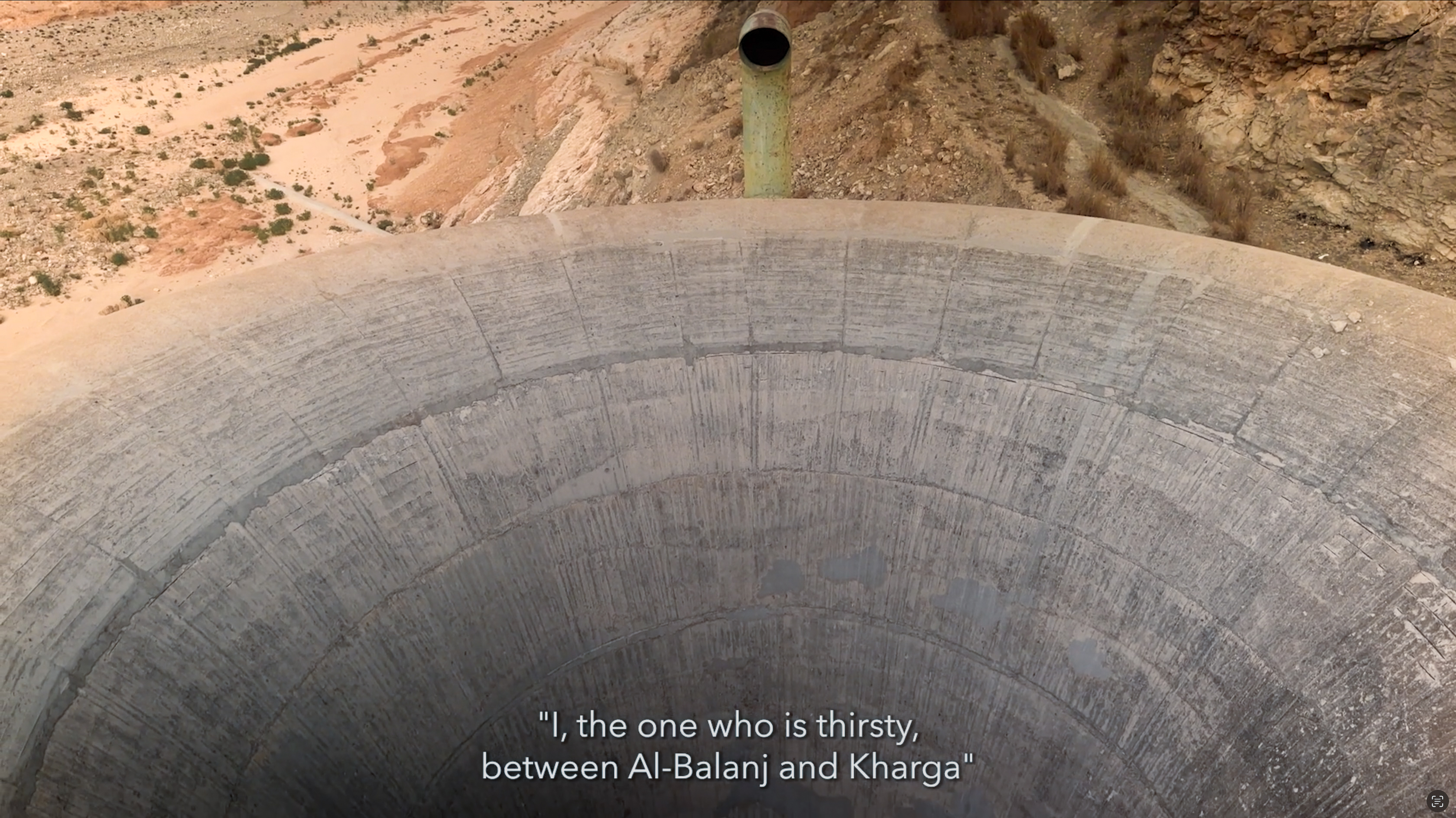20 Dinars/LD 20, 2002, map of the Great Man-Made River project and watermark illustrating resistance fighter Omar El Mukhtar
Shehrazade Mahassini
Supervisor
Abstract
TAMING WATER AND DESERT
The Colonialities of Water Extraction in Northeastern Libya
On 10 September 2023, Storm Daniel brought torrential precipitation to the Balkans, Greece and Turkey to finally reach the Libyan coast of Derna. The accumulated body of water, resulting from a surface runoff of the Derna Valley, exceeded the capacity of the Bu Mansour and Derna Dams. On 11 September, the dams collapsed. To date, estimations count a loss of 20,000 lives or a staggering 20 % of Derna’s entire population. Environmental disasters highlight a pressing need not only to restore sustainable resource management given the effects of climate change but also to understand the historiography of extractive infrastructures. Spatiotemporally, this event extends beyond the collapse of the Bu Mansour and Derna Dams. It is the accumulation of past matter, past mismanagement and past injustices extending into the present. This research argues that the Derna and Bu Mansour Dams need to be understood within the colonial continuity of the Libyan territory and a broader nation-building scheme in the attempt to tame the desert; hence, the Great Man-Made River project (GMMR) as one of the most critical infrastructure ever undertaken by the Libyan government. The Libyan desert hid the largest fossil water aquifer, the Nubian Sandstone Aquifer System, until its discovery in 1953 during a race for oil in the region. This discovery and the water extractive activities following it must be situated in their spatiotemporality and anthropogenic fabric. After a protracted colonial period under fascist Italy (1911–1943), followed by British and French military occupation (1943–1951), the United Kingdom of Libya declared independence in 1951. Western oil companies – predominantly American, British and Italian – began strengthening their ties to the monarchy and aiding the establishment of a Libyan elite. Amid the climate of a new world order of the Cold War and the rise of the Non- Aligned Movement in the early 1960s, Colonel Muammar Gaddafi overthrew the monarchy and undertook massive territorial development based on a long-awaited process of decolonisation in the hope of a flourishing independent Libyan economy. The GMMR project and its gargantuan attempt to tame the desert rapidly revealed a past returning at a gallop. This was not only an irony of the past but an architecture of extraction transposed onto the location of colonial atrocities, making space for extractive artillery. After years of planning, the construction of the GMMR started in 1984. The infrastructure often appears spectacularly engineered and utterly detached from Libya’s sociopolitical and environmental fabric, putting the accent on the technocratic capitalist extractive aspects of the project. Tracing the continuity of the colonial imperialist legacy and attempting to decolonise the archives and nationalist narratives is at the core of a new understanding of contemporary extractivism and environmental and cultural despoliation of the desert and the habitat of humans and non-humans alike.
Bio
Shehrazade is an architect, researcher and educator. After her studies at the Bauhaus University Weimar, she worked in Cologne, Berlin, London, and Zurich. In 2022, she founded studio:institute, a practice that includes critical and transdisciplinary research where the intersectional lens on the built environment helps explore new typologies – between representation, negotiation, and appropriation. Parallel to her practice, Shehrazade is a PhD candidate at the Royal College of Art in London. Embedded in post/colonial studies, Arab and Afro-feminism, her research aims to create a new narrative and questions the historicity of space production in former colonies and how it relates to segregated urban spaces in contemporary Western society. Most recently, she has taught at École polytechnique fédérale de Lausanne – EPFL.









